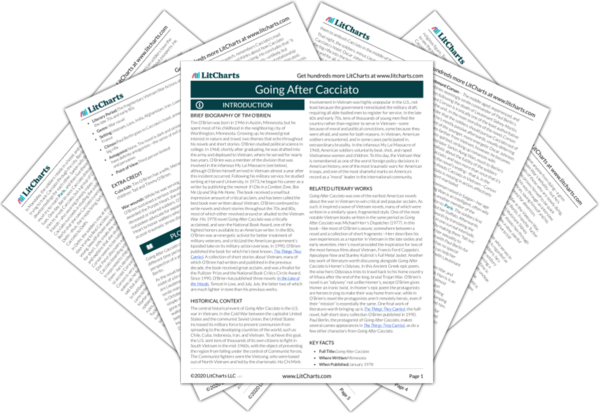Here we’re more explicitly presented with an alternate version of the novel we’ve just read, albeit a very brief one. Instead of trying to chasing Cacciato across the continent for desertion, the soldiers corner him in Vietnam, and Berchaseidentally shoots him. Afterwards, Corson lies and says that Cacciato is M.I.A.—not a crime in and of itself. We then begin to see the “full story”—after Corson’s report, Berlin, wracked with guilt, goes to the observation post and spends the next few weeks thinking about what
might have happened if he hadn’t shot Cacciato. His thoughts late at night are a kind of penitence, a way of bringing Cacciato back to life and softening the horror of his own act of murder. O’Brien doesn’t explicitly say that Berlin shot Cacciato, but it’s strongly and repeatedly implied, making the event much more disturbing.


